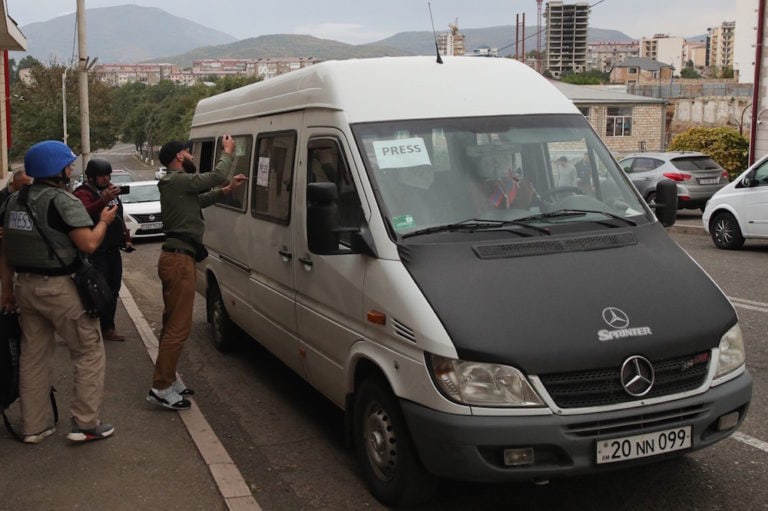(ARTICLE 19/IFEX) – The following is a 26 May 2007 ARTICLE 19 press statement: ARTICLE 19 STATEMENT on New Provisions for the Appointment of Members of the National Commission on Television and Radio ARTICLE 19 welcomes the amendments to the Law of the Republic of Armenia on the Rules of Procedure of the National Commission […]
(ARTICLE 19/IFEX) – The following is a 26 May 2007 ARTICLE 19 press statement:
ARTICLE 19 STATEMENT on New Provisions for the Appointment of Members of the National Commission on Television and Radio
ARTICLE 19 welcomes the amendments to the Law of the Republic of Armenia on the Rules of Procedure of the National Commission on Television and Radio, adopted on 26 February 2007, and signed by the President on 20 March 2007. They demonstrate the government’s political will to improve existing legislation. The new definition of the National Commission on Television and Radio (Commission) as an “independent regulatory body, which ensures the freedom, independence and diversity of the broadcasting media” is especially welcomed.
Meanwhile we remain concerned at the actual level of independence of the Commission. The stipulation that the Commission will be composed of eight members (compared with the current nine members), half of them to be appointed by the National Assembly and the other half by the President, is a central issue in the amendments. Previously all nine members of the Commission were appointed by the President. Currently there is also no mechanism for public consultation for the nomination of members. The new amendments do not address the issue of nomination. Moreover, there are no provisions stating that the members should reflect Armenia’s social and political diversity, or that the appointment process should be open and transparent.
Although the amendments improve the law, they are still not satisfactory and fail to guarantee the autonomy and independence of the Commission. This concern is especially pressing when the Parliamentary majority and the President have the same political affiliation, as is the case in Armenia.
Broadcasting is by far the most important source of information and entertainment in Armenia. The difficulty of distributing newspapers, especially to the remote regions of the country, makes the broadcast media effectively the only source of information for the majority of the population. As a result of this central role and its growing profitability, broadcasting media has crucial political and economic power. Thus, the independence and the diversity of broadcast media are decisive for the freedom of expression in the country.
Therefore, it is of paramount importance that the Commission responsible for the distribution of broadcast licences enjoys full and unconditional independence from government control and any form of political and/or commercial interference. The process for appointing members should be open and democratic and should not be dominated by any particular political party or commercial interest. Such a process should include public consultation with civil society in relation to the nomination of members in order to ensure adequate representation of the political and social diversity of the country.
In order to achieve this, we recommend that nominations be elicited from the public through advertisements in leading media outlets, and the Commission’s selection hearings be held in public, so as to allow input and comments from any interested party. The appointment of half the members by the president, and the lack of procedure for nomination of members, clearly do not meet the international standards listed above.
We therefore call on the National Assembly of Armenia to further review the Law of the Republic of Armenia on the Rules of Procedure of the National Commission on Television and Radio so as to ensure the following:
– The president should not have the power to appoint half of the members of the Commission. Instead, all members should be appointed by an all-party body, such as the Parliament, or directly by civil society groups.
– Appointment of members to the Commission should be based on public interest considerations. To promote this, public nominations should be allowed and advertisements announcing the process should be placed in leading media outlets.
– The Law should require the Commission’s selection hearings to take place in public and in a manner that allows for input from any interested party.
– The Law should stipulate that the members of the Commission as a whole should reflect the diverse makeup of Armenian society.


